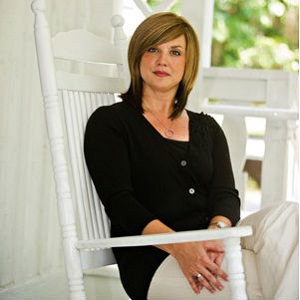 Editor’s note: Raychelle Cassada Lohmann, MS, LPC, is the co-author of The Bullying Workbook for Teens. Her continuing education presentation for GoodTherapy.org is scheduled for 9 a.m. PDT on March 14. This event, free to GoodTherapy.org members, is good for two CE credits. For details, or to register, please click here.
Editor’s note: Raychelle Cassada Lohmann, MS, LPC, is the co-author of The Bullying Workbook for Teens. Her continuing education presentation for GoodTherapy.org is scheduled for 9 a.m. PDT on March 14. This event, free to GoodTherapy.org members, is good for two CE credits. For details, or to register, please click here.
A Child’s Plea
Don’t call me a bully, please.
OK, so I’m a kid, and not a very nice one at times. I’m constantly in trouble at school, and my only friends are the ones who are afraid of me. They don’t think I know that’s the only reason they stick by me, but I’m not stupid. It’s the only way I can keep friends. I usually find kids who have things I don’t, such as money, cool clothes, nice things, etc., and pick on them. I guess if you really want to know, I’m jealous, but I’ll never admit it.
My grades suck, my home life sucks even more, and yeah, I guess I like seeing others who “have it all” suffer like I do. My anger can be explosive at times—some say I’m just like my dad, but I’ve never met him; he took off when I was 5. My mom busts her butt working two jobs just to make ends meet, and my sister beats the crap out of me when we’re home alone. We have to do a lot of work around the house because Mom gets home late every night. For dinner, I usually throw something in the microwave or heat up a frozen pizza. Pretty exciting life, huh?
As for school, who cares if my homework gets done? Sure, Mom rides my case when I get my report card, but she’s not very consistent and says she’s too tired to do anything with me. I am sick and tired of being told that I “have the ability to do well.” Yeah, I know I could make better grades, but the fact is I don’t want to.
If you really want to help me, don’t call me a bully. Please just help me to feel loved and cared for. Teach me kindness and how to control my anger. Help me learn to care for myself so I can care for others. Teach me how to make real friends, but please don’t label me and call me a bully.
There is a growing movement to combat a very real epidemic in our country: bullying. Between 40% and 80% of school-age children experience bullying at some point, according to the American Psychological Association. When it comes to this complex issue, most of our concern goes out to those who are victimized by bullying, even those who witness it (the traumatized bystanders)—and understandably so.
But what about the child who bullies?
Before you answer that question, consider this: Research (from the Centers for Disease Control and Prevention and the Massachusetts Department of Public Health) shows that children who are both victims and perpetrators are more likely to have experienced violence in the home. Children who bully are about four times more likely to have been hurt by someone in their family than children who were neither bullies nor victims of bullying. Children who engage in bullying are also at an increased risk of being involved in crime before the age of 30.
These children desperately need our help. Bullying is a changeable behavior that warrants our attention.
Children who bully are at risk of:
- Suicide
- Academic problems
- Substance abuse
- Mental health issues
- Family violence
Signs that a child may be engaging in bullying behaviors:
- Instigation of physical or verbal altercations
- Hanging out with peers who bully others
- Acting out aggressively
- Getting into trouble frequently at school
- Blaming others for their problems and failing to assume responsibility
Skills that children who bully often lack:
- Impulse control
- Social skills
- Anger-management skills
- Problem-solving skills
- Empathy
“Bully” is a label that doesn’t belong on a child. It is a learned behavior that can be unlearned. Children who engage in bullying frequently experience disciplinary consequences, but do not receive appropriate counseling interventions. It’s time we stop viewing children as bullies and start realizing it is the behavior that needs to be addressed.

The preceding article was solely written by the author named above. Any views and opinions expressed are not necessarily shared by GoodTherapy.org. Questions or concerns about the preceding article can be directed to the author or posted as a comment below.

 LGBTQ+ Youth Suicide: As Serious As It Is Preventable
LGBTQ+ Youth Suicide: As Serious As It Is Preventable The Antisocial Network: Social Media and Bullying Culture
The Antisocial Network: Social Media and Bullying Culture Angels from Newtown: Are We Listening?
Angels from Newtown: Are We Listening?

